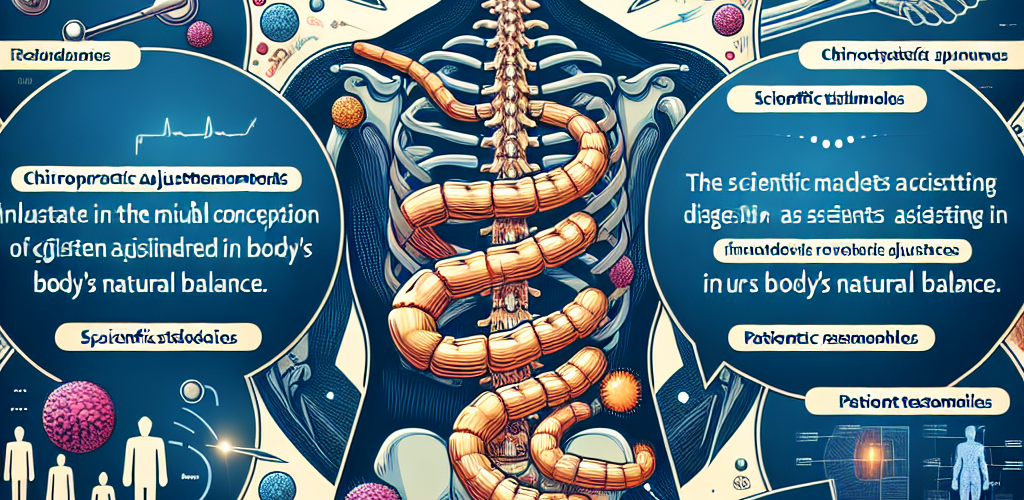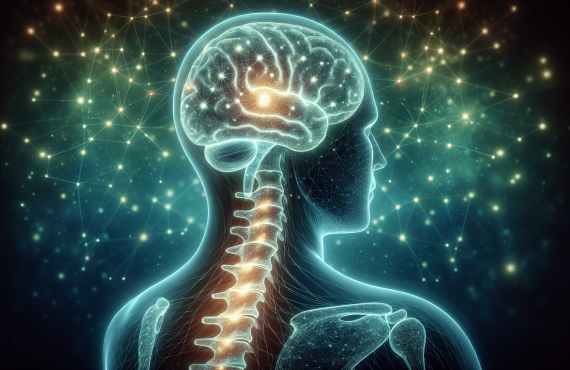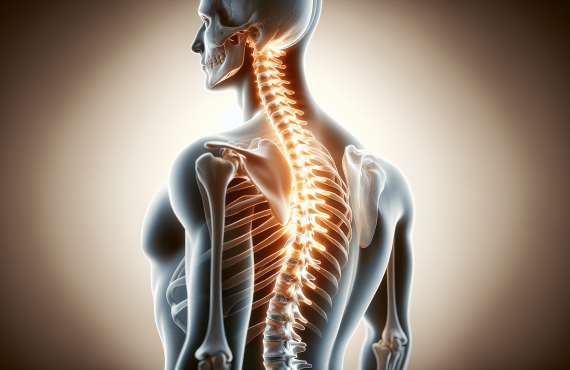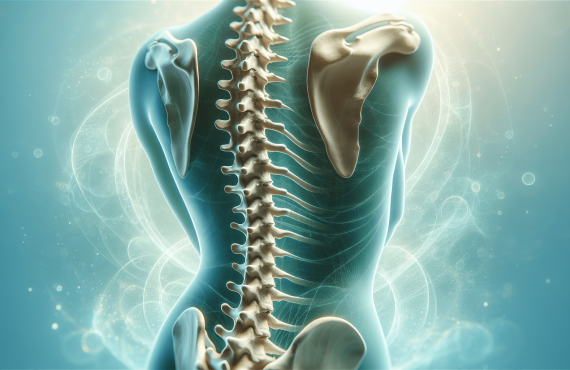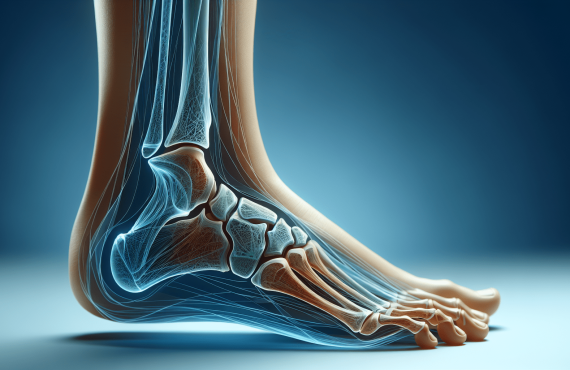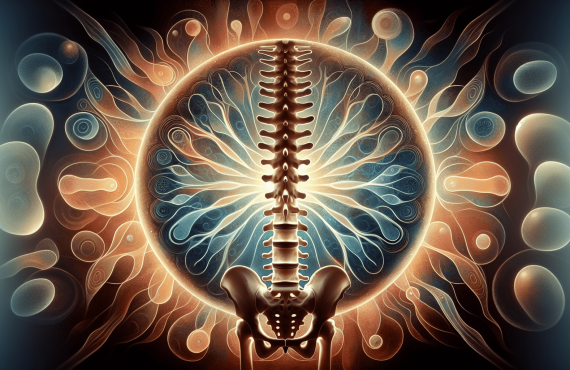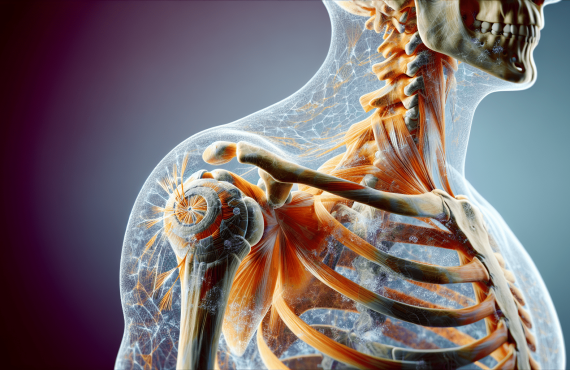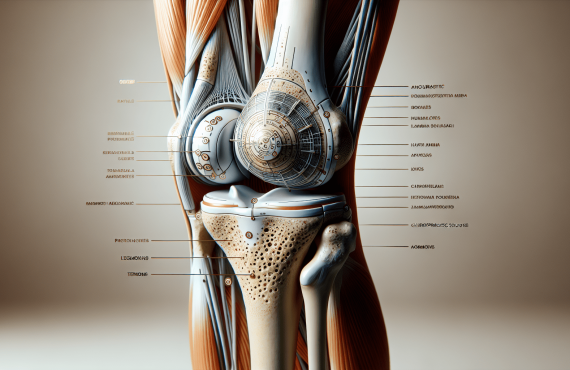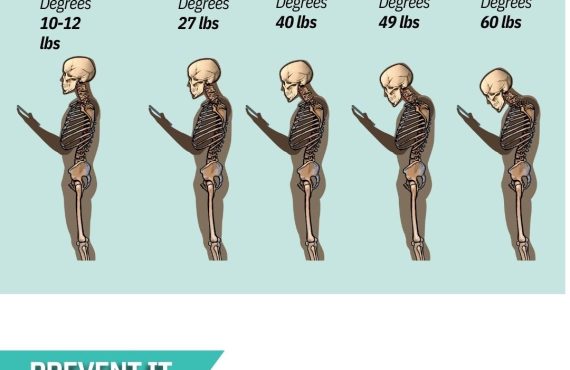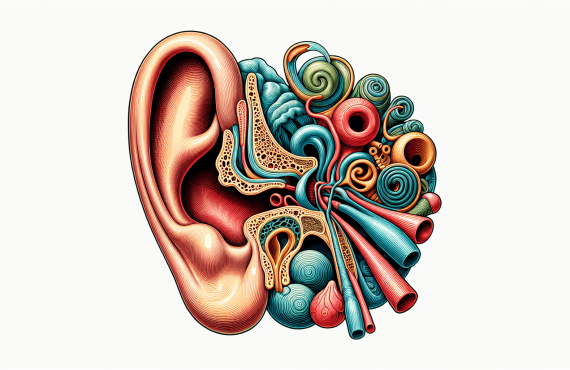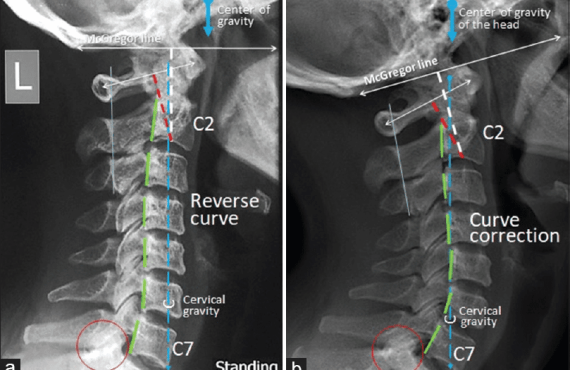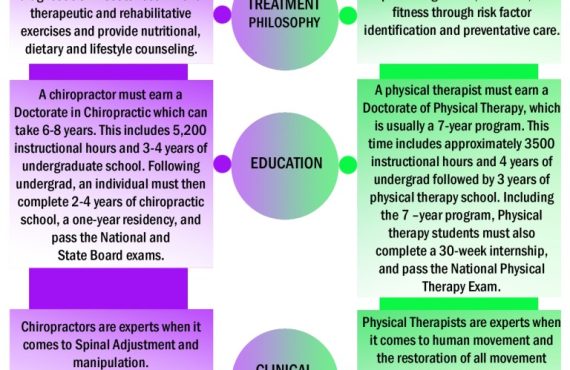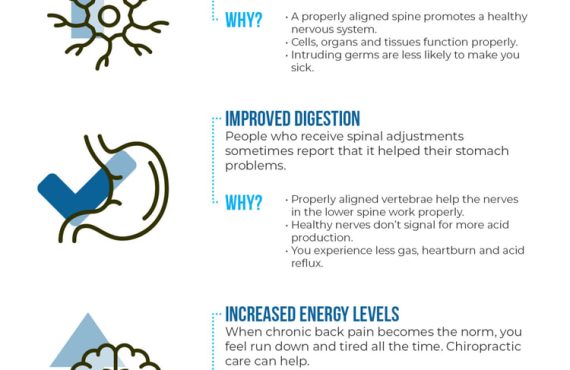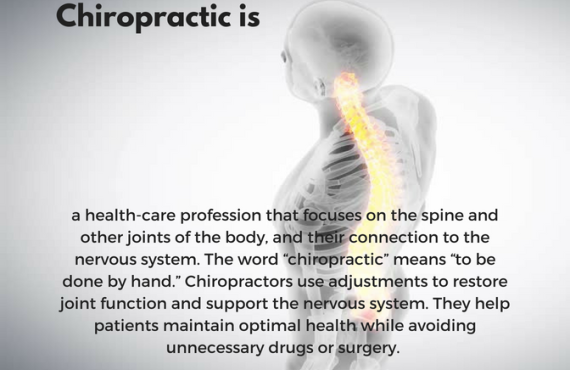If you’re struggling with digestive issues, you may be wondering if chiropractic care could offer some relief. Look no further than Henry Chiropractic, owned and operated by Dr. Craig Henry in Pensacola, Florida. Dr. Henry is a licensed chiropractor with a passion for improving health and wellness in all areas of his patients’ lives. Alongside him is Dr. Aaron Hixon, a board-certified chiropractor with a deep commitment to helping others. Both practitioners are trained in a variety of chiropractic techniques and are here to assist you on your journey towards better digestive health.

Table of Contents
What is Chiropractic?
Chiropractic is a healthcare discipline that focuses on the diagnosis, treatment, and prevention of disorders of the musculoskeletal system, particularly the spine. It is a non-invasive and drug-free approach to healthcare that aims to restore and maintain the body’s natural balance.
Definition of chiropractic
Chiropractic is based on the principle that the body has the ability to heal itself. Chiropractors use manual techniques, such as spinal adjustments, to correct misalignments and restore proper function to the spine and nervous system. By doing so, they aim to alleviate pain, promote healing, and improve overall health.
Principles of chiropractic care
Chiropractic care is based on several fundamental principles. Firstly, it recognizes that the body is a self-healing organism and that optimal health can be achieved when the body is functioning properly. Secondly, it acknowledges that the nervous system plays a crucial role in the body’s ability to heal and maintain health. Finally, chiropractic care emphasizes the importance of a holistic approach to healthcare, addressing the underlying causes of health problems rather than simply treating the symptoms.
Understanding Digestive Issues
Digestive issues are common problems that can significantly impact a person’s quality of life. They include conditions such as irritable bowel syndrome (IBS), acid reflux, constipation, and bloating.
Common digestive issues
There are various digestive issues that individuals may experience. These include:
- Irritable bowel syndrome (IBS): A chronic condition characterized by abdominal pain, bloating, and changes in bowel habits.
- Acid reflux: A condition in which stomach acid flows back into the esophagus, causing heartburn and discomfort.
- Constipation: Difficulty or infrequent bowel movements, often accompanied by abdominal pain or discomfort.
- Bloating: The sensation of a full or swollen abdomen, often accompanied by gas and discomfort.
Causes and symptoms of digestive issues
Digestive issues can have multiple causes, including poor diet, stress, food intolerances, and underlying medical conditions. The symptoms experienced may vary depending on the specific issue but can include abdominal pain, bloating, gas, heartburn, and changes in bowel movements.
How Chiropractic Affects the Digestive System
While chiropractic care is commonly associated with the treatment of musculoskeletal issues such as back pain or neck pain, it can also have a positive impact on the digestive system.
The relationship between the spine and digestive system
The spine plays a crucial role in the body’s overall function, including the digestive system. Nerves that control digestion originate in the spine and travel to the digestive organs. Misalignments or restrictions in the spine, known as subluxations, can interfere with the proper functioning of these nerves, leading to digestive issues.
Effects of misalignments on digestion
Misalignments in the spine can disrupt the communication between the brain and the digestive system, leading to imbalances and dysfunction. When the nerves that control digestion are impeded, it can result in decreased digestive function, reduced nutrient absorption, and increased inflammation in the digestive system. Chiropractic adjustments aim to restore proper alignment and remove nerve interference, allowing the digestive system to function optimally.
Benefits of Chiropractic Care for Digestive Issues
Chiropractic care can offer several benefits for individuals experiencing digestive issues. By addressing the underlying causes of these issues, chiropractic care can provide long-term relief and improve overall digestive function.
Reduced inflammation in the digestive system
Misalignments in the spine can contribute to inflammation in the digestive system. Chiropractic adjustments help restore proper alignment and remove nerve interference, which can reduce inflammation and promote healing in the digestive organs.
Improved nerve function to the digestive organs
Chiropractic adjustments aim to remove interference in the nervous system, allowing for optimal communication between the brain and the digestive organs. This improved nerve function can result in enhanced digestive function, including better absorption of nutrients and improved bowel regularity.

Chiropractic Techniques for Digestive Issues
Chiropractors use various techniques to address digestive issues and promote optimal digestive function. These techniques may include:
Spinal adjustments
Spinal adjustments are the foundation of chiropractic care. By applying precise, controlled force to specific areas of the spine, chiropractors can correct misalignments and restore proper function. Adjusting the spine can alleviate nerve interference and promote optimal communication between the brain and the digestive organs.
Soft tissue therapy
In addition to spinal adjustments, chiropractors may use soft tissue therapy techniques such as massage, myofascial release, and trigger point therapy to address muscle tension and imbalances in the abdomen and digestive organs. These techniques can help improve blood flow, reduce inflammation, and promote optimal digestion.
Nutritional counseling
Chiropractors often provide nutritional counseling as part of their comprehensive approach to healthcare. They can evaluate an individual’s diet and make recommendations for dietary changes that can support digestive health and overall wellness.
Research on Chiropractic and Digestive Issues
Scientific research has explored the effectiveness of chiropractic care for digestive issues, and the findings have been promising.
Studies and findings
A study published in the Journal of Manipulative and Physiological Therapeutics found that chiropractic care resulted in significant improvements in gastrointestinal symptoms in patients with irritable bowel syndrome. Another study published in the Journal of Chiropractic Medicine reported improvements in patients with acid reflux following chiropractic adjustments.
Patient testimonials
Many individuals who have sought chiropractic care for digestive issues have reported positive outcomes. They have experienced reduced symptoms, improved digestion, and an overall improvement in their quality of life.
Choosing a Chiropractor for Digestive Issues
When selecting a chiropractor to address digestive issues, several factors should be considered.
Credentials and qualifications
Ensure that the chiropractor is licensed and has received appropriate training and education from an accredited chiropractic school. Look for certifications and additional qualifications that demonstrate expertise in addressing digestive issues.
Experience with digestive issues
Find a chiropractor who has experience in treating digestive issues. They should have a thorough understanding of the digestive system and the potential impact of spinal misalignments on digestive function.
Patient reviews and referrals
Read patient reviews and seek referrals from trusted sources, such as friends, family, or healthcare professionals. Positive reviews and personal recommendations can provide valuable insights into the chiropractor’s expertise and patient satisfaction.
What to Expect During a Chiropractic Visit
During your initial chiropractic visit for digestive issues, you can expect a thorough consultation and examination.
Initial consultation and examination
The chiropractor will ask about your medical history, including any digestive issues you have been experiencing. They may also ask about your lifestyle, diet, and stress levels. A physical examination will be conducted, which may include assessing your posture, range of motion, and performing palpation of the spine to identify any misalignments or areas of tension.
Development of a treatment plan
Based on the consultation and examination findings, the chiropractor will develop a personalized treatment plan. This plan may include spinal adjustments, soft tissue therapy, nutritional counseling, and recommendations for lifestyle modifications. The chiropractor will explain the proposed treatments and answer any questions you may have.
Case Studies: Chiropractic Success Stories
Chiropractic care has been effective in helping individuals with a variety of digestive issues. Here are two case studies showcasing chiropractic success in treating digestive problems:
Case study 1: Patient with chronic acid reflux
A patient suffering from chronic acid reflux sought chiropractic care after experiencing little relief from medication. Through a combination of spinal adjustments, soft tissue therapy, and dietary modifications, the patient experienced a significant reduction in acid reflux symptoms and improved overall digestive function.
Case study 2: Patient with irritable bowel syndrome
A patient diagnosed with irritable bowel syndrome sought chiropractic care to manage their symptoms. After a series of spinal adjustments and nutritional counseling, the patient reported reduced abdominal pain, improved bowel regularity, and reduced bloating.
Other Considerations
While chiropractic care can be effective for digestive issues, it is essential to consider its integration with other treatment methods and the associated costs and insurance coverage.
Integration with other treatment methods
Chiropractic care can be complementary to other treatment methods, such as dietary changes, stress management, and medication. It is crucial to work with a healthcare team to develop an integrated treatment approach that addresses all aspects of digestive health.
Cost and insurance coverage
The cost of chiropractic care for digestive issues may vary depending on factors such as location and the specific treatments provided. Check with the chiropractor’s office about their fees and whether they accept insurance. Some insurance plans may provide coverage for chiropractic care, especially if it is deemed medically necessary.
In conclusion, chiropractic care offers a holistic and non-invasive approach to address digestive issues. By correcting misalignments in the spine and promoting optimal nervous system function, chiropractors can help alleviate symptoms, reduce inflammation, and improve overall digestive health. When choosing a chiropractor, consider the practitioner’s credentials, experience, and patient reviews. Additionally, it is essential to have realistic expectations and collaborate with other healthcare professionals to develop a comprehensive treatment plan. With the right chiropractor and personalized care, individuals with digestive issues can experience improved well-being and a better quality of life.


